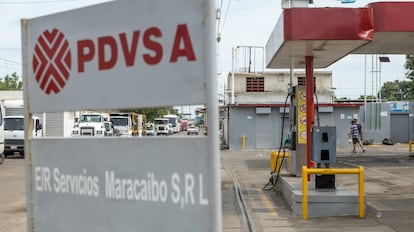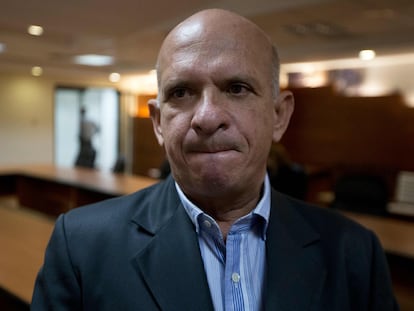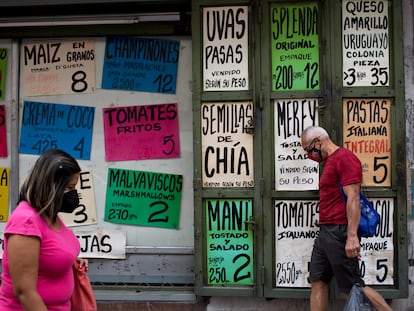Frontman for Venezuelan oil company looting scheme funneled $1.1 billion through an Andorra bank
Luis Mariano Rodríguez Cabello controlled 11 murky accounts in the now-closed Banca Privada d’Andorra

The businessman Luis Mariano Rodríguez Cabello is an unassuming 58-year-old man from Caracas who manages Inverdt Business Advisors, a company offering enigmatic “supplier search and strategic alliance” services. But his low-key profile has been spotlighted by revelations that he was a key player in the scheme that plundered $2 billion from his country’s most important state-owned company – Petróleos de Venezuela SA (PDVSA).
While all the media attention focused on the political leaders of the corruption network – Nervis Villalobos and Javier Alvarado (both former deputy ministers of Energy) – Rodríguez, a certified public accountant, quietly played a key role in the money laundering operation. The corrupt PDVSA officials and their collaborators raked in millions by charging a 10% commission for facilitating contract awards by the energy giant.
According to a confidential report from the Financial Intelligence Unit of Andorra (UIFAND) obtained by EL PAÍS, Rodríguez controlled 11 secret accounts in the Banca Privada d’Andorra (BPA), where the corrupt network parked $1.14 billion between 2007 and 2015.
According to UIFAND investigators in Andorra (a microstate nestled between Spain and France that was long considered a tax haven) Rodríguez is the frontman for Diego Salazar, a cousin of Rafael Ramírez, Venezuela’s former Minister of Energy, former president of PDVSA, and former ambassador to the United Nations. Rodríguez concealed his connection to the BPA accounts through several Panamanian shell companies. Only one account was registered in his name.
Rodríguez used one of the most obscure pieces of his business to move $616 million. He deposited $121.3 million into the Highland Assets Corp account from a payment by Sinohydro Corporation Ltd, a large Chinese engineering company that operates in 72 countries. Sinohydro was awarded two phases of the La Cabrera thermoelectric plant in the Venezuelan state of Aragua, which was inaugurated in 2014 and cost $603 million to build.
The following companies also paid into this BPA account, which the frontman opened in 2007: China Machinery Engineering Co. ($70.5 million); China CAMC Engineering Co. ($51.7 million); Shandong Kerui Petroleum Equipment ($17.1 million); Cici Venezuela ($25.1 million); and Yutong Hong Kong Limited ($11.8 million).
The transactions were a component of a $20 billion agreement finalized in 2010 between Venezuela and China, enabling Chinese engineering firms to obtain contracts in the Latin American nation. The corrupt group purportedly exploited the treaty for financial gain.
Ten million dollars of the $616 million in payments from Asian companies was later transferred in 2009 to a Swiss account held by Omar Farías, a Venezuelan insurance tycoon accused in Andorra of involvement in the scheme.
Extravagant spending
Rodríguez diverted part of the loot to pay for the network’s extravagances. One account was used to settle $604,034 in bills from Paris’ Four Seasons Hotel George V in 2009 and 2010. According to UIFAND documents, Diego Salazar, a cousin of former minister Rafael Ramírez, indulged in luxurious stays at the famous hotel, which offers expansive suites with views of the Eiffel Tower and three Michelin-starred restaurants. “The customer is sending €270,000 [$300,348] for accommodation [at the Four Seasons in Paris] in August,” reads a 2009 email from a BPA employee.
Rodríguez also used this account to pay bills from the French wine store Lavinia ($307,889) and the Ritz Hotel ($553,923).
The insurance tycoon
An analysis of Rodríguez’s second account in BPA reveals that a company called Surplus Sociedad de Corretaje de Reaseguros was one of the main depositors to the account. Between 2011 and 2012, the company transferred $52.8 million to the BPA account from the Dutch Antilles. Reportedly, this was undertaken based on alleged consulting work by Rodríguez regarding the “allocation of international reinsurance risk.”
Rodríguez also received the substantial sum of $26.3 million from Cedisa Consultores Inc., an intermediary insurance company also located in the Dutch Antilles. Between 2011 and 2012, this company was granted nine contracts by PDIVC, the insurance subsidiary of the Venezuelan state oil company.
Insurance companies also funded the third BPA account – Antigua Omega – with $217.7 million from 2008 to 2012. The main contributors were CGA LTDA INC ($203.7 million) and ISB Sociedad CSSA ($14 million), companies represented by Farías and Rodríguez.
Rodríguez informed the BPA that he transferred $3.3 million in 2008 from the Antigua Omega account to the International Bank for Reconstruction and Development (IBRD), an arm of the World Bank, to pay for a property in Venezuela purchased from the IBRD.
Rodríguez also used another BPA account – DT Investment and Consulting CV – to deposit $9.5 million from the Asian China Machinery Engineering Corp in 2012. The money was a commission for awarding the Chinese firm a contract to build a 241,335 KW power plant in Zulia (Venezuela). According to Andorran records, the money corresponded to a “5% commission, excluding taxes” for this estimated $508 million project.
Investigators describe Rodríguez as a crucial component of an intricate mechanism to conceal financial transactions. About 30 companies with links to tax havens like Switzerland and Belize facilitated the flow of funds into the Andorran bank accounts. Until 2017, Andorra, with a population of 78,000, maintained banking secrecy.
Rodríguez’s name was not the only one on some of the BPA accounts. The Spain-born Venezuelan citizen Estíbaliz Basoa, 50, was also listed on an account containing $6.4 million. And a 69-year-old engineer from Caracas named José Enrique Luongo showed up on an account containing $21 million.
In the group of 30 individuals prosecuted in Andorra (which includes Basoa and Luongo) the name Nervis Villalobos stands out. He was the Deputy Minister of Energy and Petroleum in the first phase of the Hugo Chávez administration (1999-2013). Villalobos transferred a total of $124 million to the European country.
Villalobos was arrested in Madrid for a different crime than the PDVSA embezzlement, but Spanish authorities denied the United States’s request for his temporary extradition. Venezuelan prosecutors have linked him to a corruption network that includes Javier Alvarado, the once highly influential former Deputy Minister of Energy and Petroleum and director at the state-owned National Electric Corporation (Corpoelec). Alvarado controlled $46 million in Andorran bank accounts through a complex financial network. Venezuela’s Ministry of Justice claims an astonishing $4.2 billion was looted from PDVSA.
The Andorran judge presiding over the case has also prosecuted several former executives and employees of BPA. In March 2015, Spanish and Andorran regulators took over control of BPA for suspected money laundering. During the investigation, it was discovered that the bank had opened multiple accounts for corrupt networks with Politically Exposed Persons (one who has been entrusted with a prominent public function) who should have been subject to special anti-money-laundering monitoring.
Sign up for our weekly newsletter to get more English-language news coverage from EL PAÍS USA Edition









































